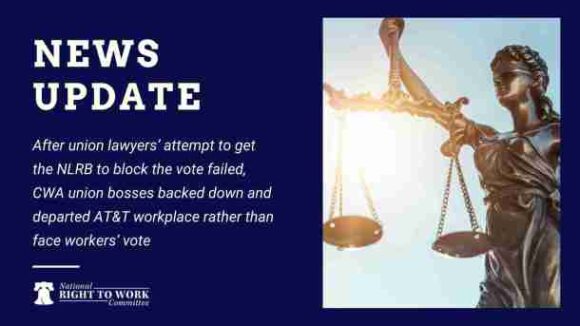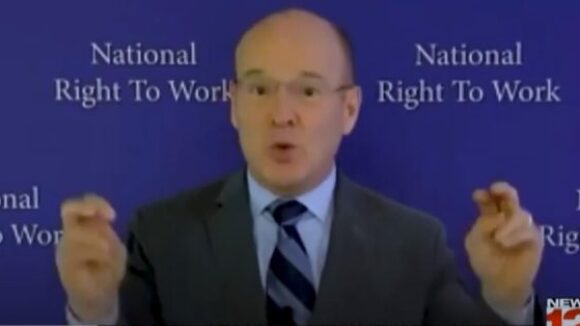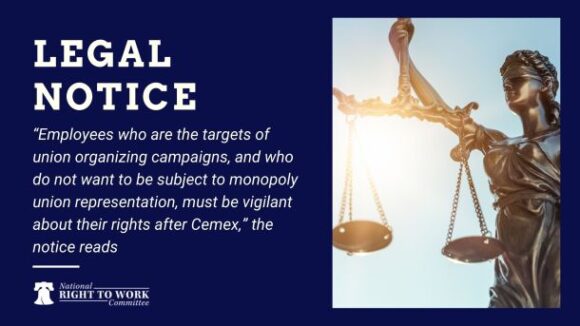Under American traditions of limited government, affiliation with a private organization is, the vast majority of the time, a purely personal decision.
It’s not a collective decision. For example, the mere fact that most businesses in a town choose to join the local Chamber of Commerce doesn’t give the chamber monopoly power to speak on business issues before the town council, denying businesses that don’t join the right to speak for themselves.
Unfortunately, current federal labor law doesn’t grant to workers the same choice other Americans routinely expect, that is, the right to present their own views on matters that directly concern them, rather than have an agent they didn’t choose speak for them. If the federal government deems that a majority of the front-line employees in a particular business support a particular union, that union can force all employees, including union nonmembers as well as members, to accept it as their monopoly-bargaining agent.
One of the principal goals of the National Right to Work Committee is to amend federal labor so that the individual worker’s freedom to speak for himself or herself on matters concerning pay, benefits, and other conditions of employment receives just as much protection as the individual employer’s freedom to speak for himself or herself on business-related issues.
And measures that at least require union officials to clear a higher hurdle before they can acquire monopoly-bargaining power are a step in the right direction. One incremental reform currently backed by the Committee is H.R 1815, the Union Coercion Prevention Act. Sponsored by Congressman Steve Stockman (R-Texas), H.R. 1815 would prohibit so-called “card checks” and other schemes through which union officials frequently succeed in grabbing monopoly-bargaining power without even gaining the uncoerced support of a majority of employees.
Charges filed with the National Labor Relations Board (NLRB) last week on behalf of eight workers at the Volkswagen plant in Chattanooga, Tenn., by an attorney for the National Right to Work Legal Defense Foundation illustrate how longstanding federal policies that enable union bosses to acquire monopoly-power through the collection of signed “authorization cards” alone, without ever allowing employees a chance to vote, facilitate fraud.
On September 26 Sean Higgins of the Washington Examiner reported on the Volkswagen employees’ NLRB case against the United Autoworkers (UAW) union hierarchy. (See the link below for the entire story.) As Higgins explained, the employees charge that union organizers resorted to deceit and, arguably, bribery in their eagerness to acquire monopoly-bargaining power:
In charges filed with the National Labor Relations Board Wednesday, the eight allege that union
officials lied to them, claiming that signing union cards did not count as a vote to join. In fact, the cards
were presented by the union to the company as proof the workers wanted to organize.
The workers further allege that the UAW resisted giving the cards back after they learned of their true
purpose. The workers were told they had to appear in-person at the union’s office to get the cards
back.
“When I was approached to sign a card a year and a half ago, it was, ‘Oh, the card just means you
want more information,'” plant employee Carol Wilson told local NBC affiliate WSMV on Sept. 17. “Yes I
signed a card. But yes, I got it revoked when I found out it was counted as a vote.”
Such actions are illegal under federal labor labor law and could impact UAW’s efforts to make inroads
into Tennessee, which is home to several foreign-owned nonunion auto factories.
Other workers confirmed to WSMV that the UAW sponsored a trip for them and their families to a local
amusement park called Lake Winnepesaukah, though they disputed that it amounted to a bribe.


